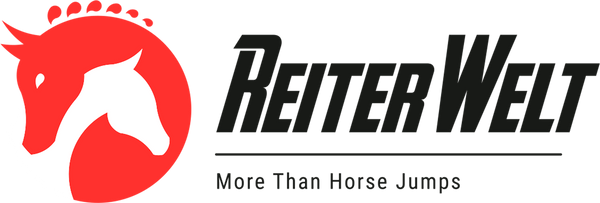
Equine Nutrition: How to feed my horse?
Share
Proper nutrition is essential for maintaining the health and well-being of your horse. A balanced diet that provides all the necessary nutrients is crucial for optimal horse health. In this article, we will explore the basics of equine nutrition and provide you with tips on how to feed your horse.
Key Takeaways
- Ensure your horse has access to fresh, clean water at all times.
- Feed your horse a diet that is balanced in carbohydrates, proteins, fats, vitamins, and minerals.
- Consider the age, breed, and activity level of your horse when determining their nutritional needs.
- Create a feeding schedule that provides regular meals throughout the day.
- Choose the right type of feed for your horse, taking into account their dietary requirements and any specific health concerns.
Understanding the Basics of Equine Nutrition
The Importance of a Balanced Diet for Horses
A balanced diet is crucial for the overall health and well-being of horses. It provides them with the necessary nutrients they need to thrive and perform at their best. Proper nutrition helps support their immune system, maintain a healthy weight, and promote optimal growth and development. Without a balanced diet, horses may be at risk for various health issues and deficiencies.
Key Nutrients for Optimal Horse Health
Proper nutrition is essential for maintaining the health and well-being of your horse. By providing the right balance of nutrients, you can support their overall growth, development, and performance. One important aspect of equine nutrition is the use of Rubber Stall Mats in the horse's living environment. These mats offer numerous benefits, including improved comfort, reduced risk of injury, and easier maintenance. By providing a cushioned and non-slip surface, rubber stall mats can help prevent joint and hoof problems in horses. Additionally, they can minimize the amount of bedding needed and make cleaning the stall much easier.
Feeding Strategies for Horses
Creating a Feeding Schedule for Your Horse
Creating a feeding schedule for your horse is essential to ensure they receive the proper nutrition they need. By establishing a consistent routine, you can help maintain their overall health and well-being. Here are some tips to consider when creating a feeding schedule for your horse:
Choosing the Right Type of Feed
When it comes to choosing the right type of feed for your horse, there are several factors to consider. Quality and nutritional value should be at the top of your list. It's important to select a feed that provides all the necessary nutrients for your horse's specific needs. Additionally, you'll want to take into account any allergies or sensitivities your horse may have. Consulting with a veterinarian or equine nutritionist can help you make an informed decision. Here are some key points to keep in mind:
Supplementing Your Horse's Diet
When it comes to supplementing your horse's diet, there are a few important factors to consider. It's essential to provide your horse with the necessary nutrients to support their overall health and well-being. However, it's also crucial to avoid over-supplementing, as this can lead to imbalances or even health issues. Here are some key points to keep in mind when supplementing your horse's diet:
Conclusion
In conclusion, understanding equine nutrition is essential for feeding your horse properly. By providing a balanced diet and ensuring your horse receives the key nutrients it needs, you can promote optimal horse health. Creating a feeding schedule, choosing the right type of feed, and supplementing your horse's diet when necessary are all important strategies to consider. Remember to consult with a veterinarian or equine nutritionist for personalized advice and recommendations. With the right knowledge and care, you can ensure your horse receives the nutrition it needs to thrive.
Frequently Asked Questions
What is the recommended daily feeding amount for a horse?
The recommended daily feeding amount for a horse depends on its weight, age, and activity level. It is best to consult with a veterinarian or equine nutritionist to determine the appropriate amount for your horse.
What are the essential nutrients that a horse needs?
Horses require a balanced diet that includes carbohydrates, proteins, fats, vitamins, minerals, and water. Each nutrient plays a crucial role in the horse's overall health and well-being.
How often should I feed my horse?
Horses should be fed at least two to three times a day, with access to forage or pasture throughout the day. This helps maintain a healthy digestive system and prevents issues such as colic.
Can horses eat grass clippings?
No, it is not recommended to feed horses grass clippings. Grass clippings can ferment quickly and cause digestive issues such as colic. It is best to provide horses with fresh, quality forage or pasture.
Should I feed my horse supplements?
Supplements may be necessary for horses that have specific dietary needs or deficiencies. However, it is important to consult with a veterinarian or equine nutritionist before adding any supplements to your horse's diet.
What are the signs of poor nutrition in horses?
Signs of poor nutrition in horses may include weight loss, dull coat, lethargy, poor hoof quality, and digestive issues. If you notice any of these signs, it is important to evaluate your horse's diet and consult with a professional.
